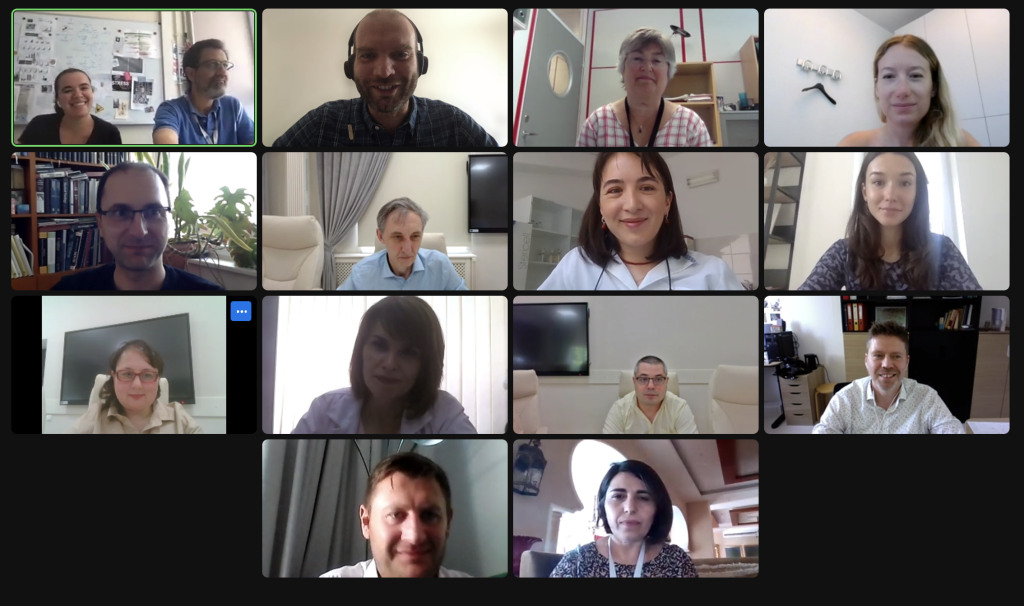On June 21 – the Tick-Borne Flaviviruses network welcomes new partners from the Republic of Moldova. During the online meeting between project partners, the Veterinary Research Institute of the Czech Republic, the Biomedical Research Center of the Slovak Academy of Science, the ICGEB and the Norwegian Institute of Health, presented their expertise in the field of tick-borne flaviviruses research, diagnostics and surveillance. Scientists from the Nicolae Testemitanu State University in Chisinau and the National Agency for Public Health of Moldova were invited to the meeting following their expression of interest in the topics of TBFVnet.
TBFVnet is a network of scientific research institutes across central and eastern Europe with the aim to study and survey tick-borne flaviviruses. The power of both survey and research relies on the collaboration between different institutes in as many countries as possible. One of the most promising objectives of TBFVnet project was to gather new research institutes in the network that could bring new knowledge and expertise and be a new observatory on tick-borne flaviviruses in Europe. This objective was reached in June with the entry of two new partners from the ICGEB Member State Moldova. Moldova is one of the countries in Europe within the endemic region of TBE and other tick-borne flaviviruses. It was actually thanks to the contacts ICGEB has in the country that two institutes, the Nicolae Testemitanu State University in Chisinau and the National Agency for Public Health, got to know about the network.
During the meeting, the TBFVnet partners presented their expertise and research fields to the Moldovan institutes. By their side, Elena Deseatnicova from the Nicolae Testemitanu University and Olga Burduniuc from the Moldovan National Agency for Public Health presented the situation of TBE in the country in terms of cases and affected regions as well as the diagnosis method they currently use. There was a great interest in setting up the diagnosis tool based on the framework of TBFVnet by the Norwegian Institute of Health.
In the near future, there will be exchanges of protocols, and knowledge to improve the research and surveillance of tick-borne flaviviruses in Moldova. With the improvement of the pandemic situation probably some scientists from the two Moldovan institutes will be hosted in one or more of the institutes of TBFVnet.
Beside this good news the TBFVnet have to say goodbye to two of its former members the Chumakov Research Institute from Moscow and the Umea University from Sweden. Our partner from Moscow was forced to leave the project due to the sanctions from Europe to Russia.


